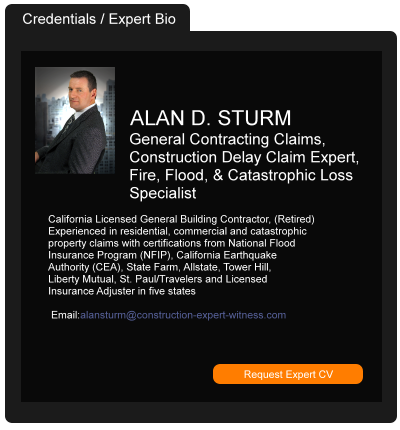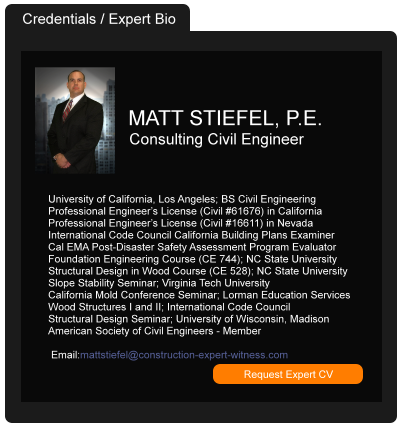Bright-Line Changes: Prompt Payment Act Trends
September 16, 2024 —
Stephanie L. Cooksey - Peckar & Abramson, P.C.Untimely payment by the owner for contract work and additional work on construction projects can place an unfair financial burden on contractors and subcontractors. Most states have attempted to eliminate or mitigate this inequity in construction contracting through Prompt Payment Acts that govern payment deadlines and provide remedies for untimely payment. This article addresses the legislative trends aimed at minimizing the risk of non-payment, overdue payment, and withholding retainage in favor of downstream parties to a construction contract.
Fortifying Contractor Protections with “Bright-Line” Language
Over the last decade, states have been tightening prompt payment laws by replacing broad, general statutory language with bright-line rules. What is a bright-line rule? A specific or definite figure, a quantifiable marker—i.e., something owners, contractors, subcontractors, and suppliers should be aware of. Practically speaking, the more bright-line a prompt payment statute is, the greater the likelihood it will affect a construction project in your state.
A standard form construction contract, if not reviewed carefully, can create conflicts or confusion if it gives a party more leeway on payment deadlines than the applicable Prompt Payment Act. For example, consider an owner-issued Construction Change Directive (“CCD”) that requires a contractor to commence additional work immediately while a formal change order is negotiated. Consequently, a CCD can push financial burdens downstream, whether inadvertently or not, and may conflict with statutory payment deadlines. Nevertheless, an owner can be justified in its utilization of a CCD to maintain the project schedule. How should the parties competing interests be resolved?
Read the court decisionRead the full story...Reprinted courtesy of
Peckar & Abramson, P.C.
Texas Legislative Update
July 19, 2017 —
Matthew S.C. Moore & Justin (JD) D. Holzeauser – Peckar & Abramson, P.C.The marquee fight between Lt. Governor Patrick and Speaker Straus, otherwise known as the 85th Regular Legislative Session, concluded on May 29, 2017. While the political clash over the controversial “bathroom bill” will continue during the special legislative session, this article is intended to provide a brief summary of the construction-related bills that passed during the regular session and a few notable ones that did not pass. A special session has been called by Governor Abbott, but no construction-related bills were included on the agenda.
What Passed?
HB 2121 – Attorney’s fees for state breach of contract claims. A contractor who prevails on a state breach of contract claim pursuant to Chapter 2260 of the Government Code, that is also valued at less than $250,000.00, may recover attorney’s fees. By using the word “may”, the bill implies that the award of attorney’s fees will be at the discretion of the administrative law judge. This bill became law on June 15, 2017.
HB 1463 – Right to cure ADA violations. A person with a disability may assert a claim for discrimination based on a violation of the building and architectural standards established in Chapter 469 of the Government Code. However, this bill requires the claimant to provide the respondent written notice at least sixty (60) days before filing an action for the violation and further gives the respondent an opportunity to cure the alleged violation within the sixty (60) day period. The obvious benefit of this bill is that it allows the respondent, e.g., the owner or potentially the contractor, an opportunity to remediate the violation without incurring litigation costs. This bill becomes effective law on September 1, 2017.
Reprinted courtesy of
Matthew S.C. Moore, Peckar & Abramson, P.C. and
Justin (JD) D. Holzeauser, Peckar & Abramson, P.C.
Mr. Moore may be contacted at mmoore@pecklaw.com
Mr. Holzheauser may be contacted at jdholzheauser@pecklaw.com
Read the court decisionRead the full story...Reprinted courtesy of
Lenders and Post-Foreclosure Purchasers Have Standing to Make Construction Defect Claims for After-Discovered Conditions
October 10, 2013 —
W. Berkeley Mann, Jr. — Higgins, Hopkins, McLain & Roswell, LLCThe Colorado Court of Appeals has decided a case which answers a question long in need of an answer: do banks/lenders have standing to assert construction defect claims when they receive title to a newly-constructed home following a foreclosure sale or deed-in-lieu of foreclosure? The decision was released on August 1, 2013, in the case of Mid Valley Real Estate Solutions V, LLC v. Hepworth-Pawlack Geotechnical, Inc., Steve Pawlak, Daniel Hadin, and S K Peightal Engineers, Ltd. (Colorado Court of Appeals No. 13CA0519).
The background facts of the case are typical of a Colorado residential construction defect case generally. A developer contracted for an analytical soil engineering report from a geotechnical engineering firm (H-P) which made a foundation recommendation. The developer’s general contractor then retained an engineering firm (SPKE) to provide engineering services, including a foundation design. The general contractor built the foundation in accordance with the H-P and SPKE criteria and plans.
The house was not sold by the developer and went into default on the construction loan. These events resulted in a deed-in-lieu of foreclosure to a bank-controlled entity which purchased the house for re-sale. Shortly after receiving the developer’s deed, the bank-related entity discovered defects in the foundation that resulted in a construction defect suit against the two design firms and related individuals.
Read the court decisionRead the full story...Reprinted courtesy of
W. Berkeley Mann, Jr.W. Berkeley Mann, Jr. can be contacted at
mann@hhmrlaw.com
Auburn Woods Homeowners Association v. State Farm General Insurance Company
January 11, 2021 —
Michael Velladao - Lewis BrisboisIn Auburn Woods HOA v. State Farm Gen. Ins. Co., 56 Cal.App.5th 717 (October 28,2020) (certified for partial publication), the California Third District Court of Appeal affirmed the trial court’s entry of judgment in favor of State Farm General Insurance Company (“State Farm”) regarding a lawsuit for breach of contract and bad faith brought by Auburn Woods Homeowners Association (“HOA”) and property manager, Frei Real Estate Services (“FRES”) against State Farm and the HOA’s broker, Frank Lewis. The parties’ dispute arose out of the tender of two different lawsuits filed against the HOA and FRES by Marva Beadle (“Beadle”). The first lawsuit was filed by Beadle as the owner of a condominium unit against the HOA and FRES for declaratory relief, injunctive relief, and an accounting related to amounts allegedly owed by Beadle to the HOA as association fees. The second lawsuit filed by Beadle was for the purpose of setting aside a foreclosure sale, cancelling the trustee’s deed and quieting title, and for an accounting and injunctive relief against an unlawful detainer action filed by Sutter Group, LP against Beadle. The complaint filed in the second lawsuit alleged that Allied Trustee Services caused Beadle’s property to be sold at auction and that Sutter Capital Group, LP purchased the unit and obtained a trustee’s deed upon sale. Beadle claimed the assessments against her were improper and the trustee’s deed upon sale was wrongfully executed. Beadle sought an order restoring possession of her unit and damages.
The HOA and FRES tendered both lawsuits to State Farm. As respects the first lawsuit, State Farm denied coverage of the lawsuit based on the absence of alleged “damages” covered by the policy issued to the HOA affording liability and directors and officers (“D&O”) coverages. State Farm agreed to defend the HOA under the D&O coverage in the second lawsuit. However, State Farm denied coverage of FRES in both lawsuits as it did not qualify as an insured under the State Farm policy issued to the HOA. Subsequently, the HOA and FRES filed an action against State Farm arguing that a duty to defend was triggered under its policy for the first lawsuit and a duty to defend FRES was also owed under the D&O policy for the second lawsuit. After a bench trial, the trial court entered summary judgment in favor of State Farm based on the failure of the first lawsuit to allege damages covered by the State Farm policy under the liability and D&O coverages afforded by the policy. As respects the second lawsuit, the trial court held that FRES did not qualify as an insured and State Farm did not act in bad faith by refusing to pay the HOA’s alleged defense costs in the second lawsuit before it agreed to defend the HOA against such lawsuit.
Read the court decisionRead the full story...Reprinted courtesy of
Michael Velladao, Lewis BrisboisMr. Velladao may be contacted at
Michael.Velladao@lewisbrisbois.com
Last, but NOT Least: Why You Should Take a Closer Look at Your Next Indemnification Clause
March 09, 2020 —
Aimee Cook Oleson - Construction & Infrastructure Law BlogIndemnification clauses appear in nearly every agreement, but they are often overlooked as mere boilerplate provisions after the parties have painstakingly negotiated all of the other terms. It is not uncommon for parties to simply re-use the indemnity language from a prior agreement without considering whether it is a good fit for their current project. This can be a big mistake that may lead to ambiguities and uncertainties if a dispute arises down the road. A standard or canned indemnification clause might work to undo all of the effort that has gone into properly allocating risk. These clauses often contain language such as “notwithstanding anything to the contrary herein,” or the like, which can alter and override other provisions in the agreement.
Indemnification clauses are arguably the most important part of an agreement when an accident or dispute arises on a project. Therefore, they deserve an extra look before finalizing an agreement. Here are a few issues to keep in mind when reviewing your next indemnification clause:
- Have you included all necessary parties?
- Any party who could face potential liability should be included as an indemnified party. This often includes entities and persons related to the contracting parties, not just the parties themselves.
- A well drafted indemnity clause will ensure that all parties are liable for the result of their own work and negligence and that of any party that they have hired to work on a project. This includes employees, agents, subcontractors, or any other similar party.
Read the court decisionRead the full story...Reprinted courtesy of
Aimee Cook Oleson, Sheppard MullinMs. Oleson may be contacted at
AOleson@sheppardmullin.com
Government’s Termination of Contractor for Default for Failure-To-Make Progress
July 10, 2023 —
David Adelstein - Florida Construction Legal UpdatesWhenever you elect to terminate the other party for cause or for default, you need to JUSTIFY the basis of the cause or default. The reason being is that a termination for default or cause is the harshest contractual remedy. This is why the other party will typically either (i) convert the termination for default into one for convenience, or (ii) if there is no termination for convenience provision in the contract, argue the terminating party breached the contract by terminating the contract without rightful justification.
The key is if you are going to terminate a party for cause of default, make sure you have memorialized the persuasive reasons for exercising the termination, and can otherwise reasonably support the justification. Do not, and I repeat, do not haphazardly exercise a termination for default and think you do not have to justify the basis for the termination.
Read the court decisionRead the full story...Reprinted courtesy of
David Adelstein, Kirwin Norris, P.A.Mr. Adelstein may be contacted at
dma@kirwinnorris.com
Honoring Veterans Under Our Roof & Across the World
November 15, 2017 —
Newmeyer & Dillion, LLPNovember 11, 2017 - In honor of Veterans Day, we would like to take time to acknowledge, honor and thank those who have served in the United States Armed Forces. We are also proud to recognize eleven of our own who have served our great country.
Ben Ammerman – United States Navy
Philip Kopp – United States Air Force
Ryan Manning – United States Marine Corps
Jason Morris – United States Marine Corps
Tyson Nakagawa - United States Marine Corps
Richard Protzmann - United States Marine Corps
Francis Quinlan - United States Marine Corps
Louis “Dutch” Schotemeyer - United States Marine Corps
Christina Soto-Maynez – United States Army
Michael Studenka - United States Marine Corps
Paul Tetzloff - United States Marine Corps
About Us
For more than 30 years, Newmeyer & Dillion has delivered creative and outstanding legal solutions and trial results for a wide array of clients. With over 70 attorneys practicing in all aspects of business, employment, real estate, construction and insurance law, Newmeyer & Dillion delivers legal services tailored to meet each client’s needs. Headquartered in Newport Beach, California, with offices in Walnut Creek, California and Las Vegas, Nevada, Newmeyer & Dillion attorneys are recognized by The Best Lawyers in America©, and Super Lawyers as top tier and some of the best lawyers in California, and have been given Martindale-Hubbell Peer Review's AV Preeminent® highest rating. For additional information, call 949-854-7000 or visit www.ndlf.com.
Read the court decisionRead the full story...Reprinted courtesy of
Yes, Virginia, Contract Terms Do Matter: Financing Term Offers Owner an Escape Hatch
November 25, 2024 —
Christopher G. Hill - Construction Law MusingsFor this week’s Guest Post Friday, Musings welcomes Timothy R. Hughes, Esq., LEED AP. Tim (@vaconstruction on Twitter) is Of Counsel to the Arlington, Virginia firm of Bean, Kinney & Korman, P.C. In his practice as a business, corporate, and construction law attorney, Tim served as the previous Chair of the Construction Law and Public Contracts Section of the Virginia State Bar. He has served in numerous volunteer, board and leadership roles with such organizations as the Arlington Chamber of Commerce, the Northern Virginia Building Industry Association, Vanguard Services Unlimited, Leadership Arlington, Associated Builders & Contractors (Metro DC and Virginia), and numerous other volunteer and construction trade association activities. A regular speaker and writer, Tim is the lead editor of his firm blog, Virginia Real Estate, Land Use and Construction Law.
A recent Virginia case once again demonstrates that contract terms matter. An unusual financing term allowed the owner of a project a complete escape from any liability on a project despite significant work being performed. The opinion from the Circuit Court of Norfolk involved five separate cases consolidated together, four claims by subcontractors and one by the general contractor Turner. All five cases hinged on an unusual financing clause in Turner’s contract with the other. That provision stated:
Read the court decisionRead the full story...Reprinted courtesy of
The Law Office of Christopher G. HillMr. Hill may be contacted at
chrisghill@constructionlawva.com


































































